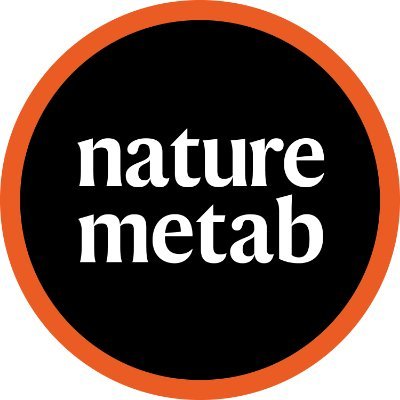
Christoffer Clemmensen
@ClemmensenC
Followers
2K
Following
4K
Media
63
Statuses
1K
Associate Professor, University of Copenhagen || Co-founder and CSO, Ousia Pharma ApS
Copenhagen, Denmark
Joined December 2012
Our new paper "GLP-1-directed NMDA receptor antagonism for obesity treatment" is out today in @Nature
https://t.co/XmAbLIZ2FX We describe the engineering and preclinical development of a new drug candidate that targets NMDA receptors in GLP-1 receptor neurons. 1/8 🧵👇
nature.com
Nature - Unimolecular integration of NMDA receptor antagonism with GLP-1 receptor agonism effectively reverses obesity, hyperglycaemia and dyslipidaemia in rodent models of metabolic disease.
27
81
318
#Throwback COMMENT | @ClemmensenC, @Z_GerhartHines, @Thue_Schwartz, @JuleenRZierath, @Kei__Sakamoto Shaping the future of cardiometabolic innovation: advances and opportunities https://t.co/SZWrOUrdKA
nature.com
Nature Metabolism - Obesity is a global public health concern closely linked to cardiometabolic complications. This Comment provides our views on recent breakthroughs, emerging innovations and...
1
8
31
🧠New in Translation Psychiatry! Together with Nadia Micali @cedar_research, @ClemmensenC, @jedobi1, François Lazeyras, Bernard Cuenoud, @carmensandi10, we explore how #ketones could serve as alternative brain fuel in #AnorexiaNervosa
https://t.co/SOJspm6V39
#ketodiet
nature.com
Translational Psychiatry - Providing alternative fuel for the brain in anorexia nervosa: a review of the literature on ketones and their effects on metabolism and the brain
3
8
17
#Throwback REVIEW | @ClemmensenC et al. Incretin-based therapeutics for the treatment of neurodegenerative diseases https://t.co/HanaEqRweD
nature.com
Nature Metabolism - This Review summarizes preclinical and clinical evidence highlighting the potential of incretin-based drugs as treatments of neurodegenerative diseases, such as...
1
4
8
If our environment promotes obesity, why do some people stay thin? 🤔 This new popular scientific article by Ute Eberle in @KnowableMag delves into this question 👇1/8 https://t.co/afjtLTL6Q8
knowablemagazine.org
1
5
13
The Nansen neuroscience lecture 2025 will be delivered by @ClemmensenC on 10 Oct 2025 in @DNVA1, Oslo. Registration and more details https://t.co/jm1ytRlzX4 His latest Nature paper on #GLP-1 https://t.co/PAKBISQH4f Hosts: @DNVA1 (@jon_storm @TheFangGroupUiO)
0
3
9
REVIEW | FREE TO READ THIS WEEK! @ClemmensenC et al #Incretin-based therapeutics for the treatment of #neurodegenerative #diseases
https://t.co/HanaEqQYp5
1
3
17
COMMENT | @ClemmensenC, @Kei__Sakamoto et al. (U Copenhagen): This Comment discusses recent breakthroughs, innovations and future needs of therapeutic interventions to counteract obesity. https://t.co/SZWrOUrLA8
nature.com
Nature Metabolism - Obesity is a global public health concern closely linked to cardiometabolic complications. This Comment provides our views on recent breakthroughs, emerging innovations and...
3
6
23
Time to indulge 🧠Free read of our review on the potential of weight loss drugs for Alzheimer’s disease, Parkinson’s disease and beyond - this month via @NatureMetabolism.
REVIEW | FREE TO READ THIS MONTH! @ClemmensenC et al #Incretin-based therapeutics for the treatment of #neurodegenerative #diseases
https://t.co/HanaEqRweD
0
0
9
New brain-targeting anti-obesity peptides (GLP-1, GIP, and dual agonists) access brain sites, such as the area postrema and arcuate nucleus, where they engage neurons controlling appetite, energy use, and reward response. By tapping into these circuits, they help suppress hunger
8
94
295
The brain is the master regulator of food intake and energy balance. A brilliant new @CellCellPress review, including the mechanism of GLP-1 drugs, by @ClemmensenC and colleagues, open-access https://t.co/KbDf7ym288
12
427
2K
8/8 Brilliantly led by @JohansenVBI with major contributions from lab members: @OdgaardJonas, @jens_lund, and @MathiesenVad - and in superb collaboration with @FenselauHenning @Metabolcenter
0
1
13
7/8 Current and emerging anti-obesity therapies act on defined neural pathways. Incretin-based single and multi-agonists, amylin receptor, MC4R agonists, and others map onto specific brain circuits, helping to explain both their therapeutic efficacy and their limitations
1
4
20
6/8 To achieve durable outcomes rather than short-term effects, targeting neuroplasticity may be essential. Lasting weight loss could depend on remodeling the underlying neural circuits.
1
2
15
We present an updated overview of the neurocircuits, and the distinct neuronal and non-neuronal cell types, involved in central control of food intake.
1
2
13
4/8 The brain receives constant input from peripheral organs including gut, fat, pancreas, and liver. Hormonal and neural signals shape appetite, reward, and energy expenditure.
1
1
14
3/8 Environmental factors are integrated by the brain, which in response regulates behavioral and physiological outputs, such as energy intake, energy expenditure, and fuel partitioning to influence energy balance, ultimately shaping variation in adiposity.
1
3
15
2/8 We begin with the big picture - examining the pathogenesis of obesity and conceptual models of body weight regulation.
1
1
14
1/8 🧠 New review from the lab in @CellCellPress: Brain Control of Energy Homeostasis We explore how central nervous system circuits regulate energy balance, and how this informs the development of next-generation obesity pharmacotherapies. 🔗
cell.com
Advances in mapping how the brain regulates energy homeostasis, together with progress in peptide-based pharmacotherapy, highlight emerging opportunities for obesity treatment with the potential to...
8
46
152
This is an important point! And maybe true across species. We have data from several mouse studies that challenge the widespread idea that overeating drives high-fat diet-induced obesity. See abstract "AD01.05" on page 35 in the abstracts from this year's ECO. Link👇
With striking clarity, @DrRobertKushner explained at #YWM2025 that it’s #obesity that causes overeating. Not the other way around. Regarding theories about a singular simple cause of obesity: “They’re wrong. Obesity does not have a single, simple cause.” https://t.co/IwUdkZz4gf
2
4
13













